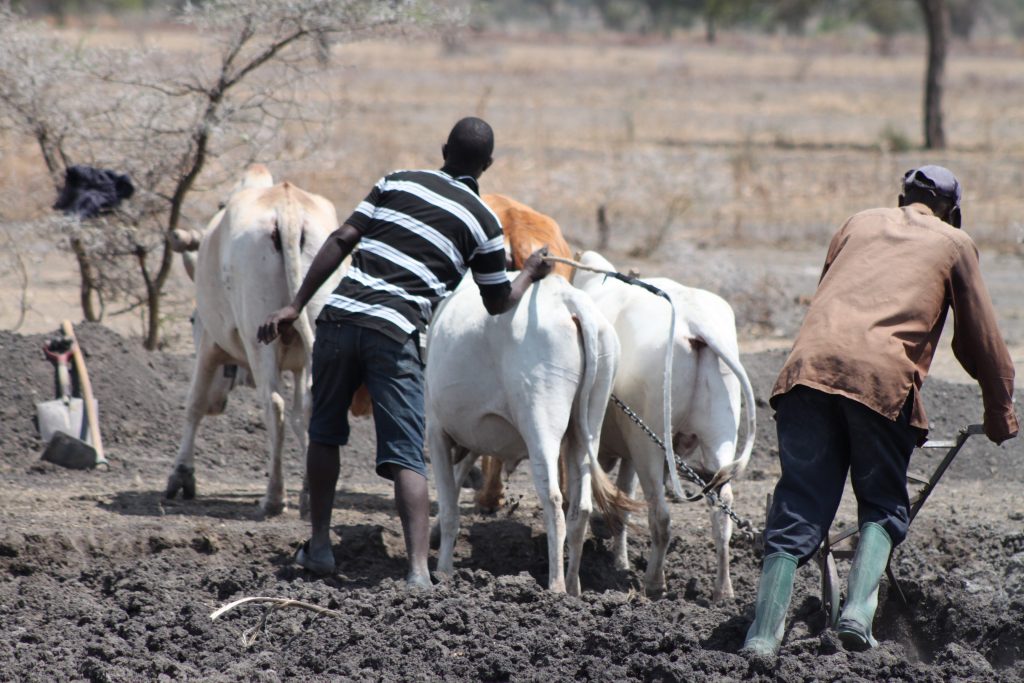Digging ponds is a labor-intensive activity when there is no access to excavators and trucks. Nevertheless, most small (<1,000 m3) ponds in rural areas are dug by hand. Labor is required for digging, removing the soil, and transporting it to the area designed to dispose excavated soil. If all these activities are done manually, there are also some simple technologies that allow the construction of ponds with the aid of draft animals.
Table 1: Comparison of tools for dug-out pond construction
| Activity | Traditionally | With aid of draft animal |
| Soil softening | Hand-digging with hoes, pick-axes and hand chisels | Ox-drawn plow |
| Soil removal | Shovel and buckets | Ox-drawn scoop |
| Soil compaction (embankments) | Hand compactors | Ox-drawn compactor |
While ox-drawn plows are readily available in most villages, the ox-drawn scoop and ox-drawn compactor need to be introduced. Luckily, an experienced workshop can easily build them from scrap metal that is locally available. The ox-drawn plow is attached to two or three oxen pairs using normal yokes. The area to be excavated is thus softened by plowing the area to a depth of 20-30 cm. It is important to plan the space so as to permit easy turns for the animals.

The softened soil is thus removed with the ox-scoop. To load the scoop, the operators simply raise the handles of the device to augment the incidental angle between the soil and the scoop. The forward movement of the animals will then do the rest. Once the scoop is loaded, the handles are lowered again, and the scoop will be pulled until reaching the disposal area. To offload the soil, the operators need to raise the handles until the scoop topples together with its load.

Excavated soil needs to be properly disposed of and is commonly used to build a berm all around the pond. It is important to compact the berm to avoid erosion problems. The process is commonly done with hand-rams. Nevertheless, a simple roll-compactor can be built with secondhand bearings, scrap metal and an old oil drum. The drum is filled with sand and rotates as it is pulled by the oxen.

